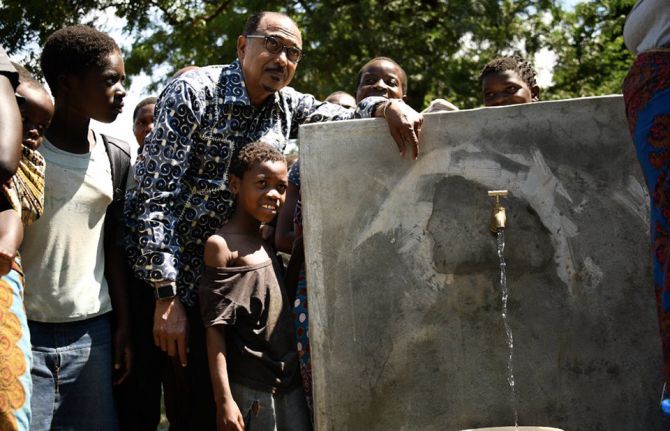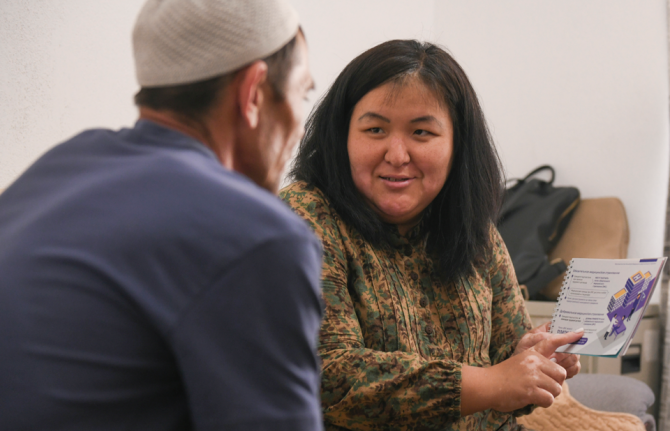

Feature Story
Cyclone Idai flood survivors ‘just want to go home’
18 April 2019
18 April 2019 18 April 2019Bangula settlement in Nsanje District, in the south of Malawi, is an arduous five kilometre walk from the border with Mozambique.
It is a walk that approximately 2 000 Mozambicans have made since they were displaced a month ago by the floods caused by Cyclone Idai. The settlement is also a temporary home to approximately 3 500 Malawians from surrounding villages who were also displaced.
Being predominately a small holder farming community, their homes, belongings and livelihoods were all washed away by the floods. They are now at Bangula, waiting for the earth to dry so they can go home and begin rebuilding their lives.
The emergency response to assist the 81 000 people in the district affected by the floods is being coordinated by the Government of Malawi, the United Nations, development partners and non-governmental organizations.
Upon arrival at the settlement, heads of households are provided with mats and blankets to sleep on and maize meal to cook.
Women and children are housed in 21 tents to the rear of the settlement, while others sleep under open industrial sheds, on concrete floors under tin rooves.
On a visit to the camp, Michel Sidibé, UNAIDS Executive Director, heard that while some amenities are being provided, there is not enough shelter for everyone and there is no lighting at night, which exacerbates vulnerabilities, especially of women and children.
It is well known that sexual and gender-based violence against women and children is heightened in emergency settings such as the one at Bangula. People also spoke of a lack of adequate nutrition, access to clean water and sanitation as well as their experiences of stigma and discrimination.
The small clinic at the settlement mostly focuses on primary health care and offers antenatal and postnatal services, HIV counselling and testing, refills of HIV treatment and psycho-social support.
While at the settlement Mr Sidibé spoke to a group of people living with HIV who had come to the settlement for shelter. They spoke of how, when the floods came, they tried to keep their HIV treatment safe from the water.
“When the floods came, my house was destroyed. But I managed to reach for my plastic bag where I keep my ARVs, because it is one of my most precious possessions,” said Sophia Naphazi, who resides in Jambo village in the district.
Elizabeth Kutenti, another women living with HIV, spoke of how her pills were safe because she keeps them in the roof. “They are my life,” she said.
The support people at the settlement need to return home is modest. “We need three things: a plastic sheet to cover what is left of our homes; maize seeds to plant and a hoe. Then we can go home,” said Miliam Moses.
“The level of resilience I have seen today is just amazing,” said Mr Sidibé. “The most important message I have heard today is one of hope.”
Mr Sidibé was accompanied by Atupele Austin Muluzi, Minister of Health and Population in Malawi. He thanked the UN agencies and the government departments supporting coordinating in the emergency response.
“We need continued support so that all the people in this settlement get the help they need so they can return home and live in dignity,” he said.



